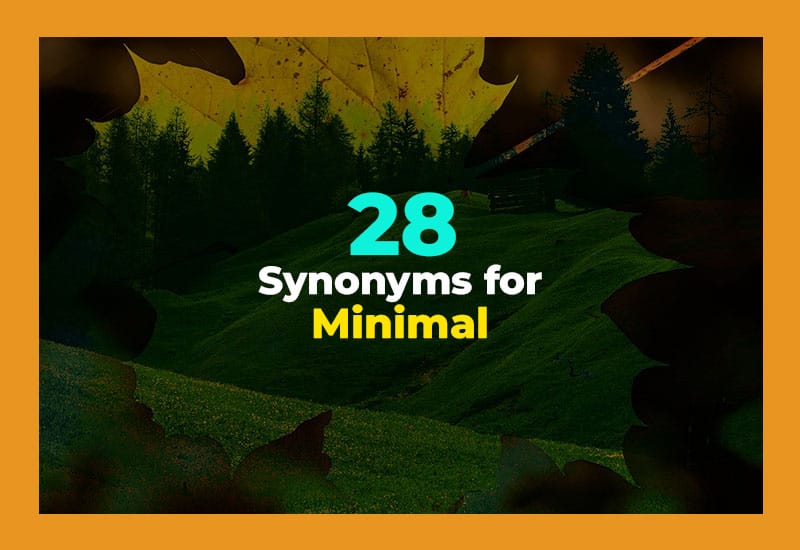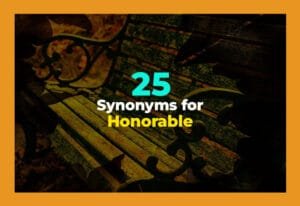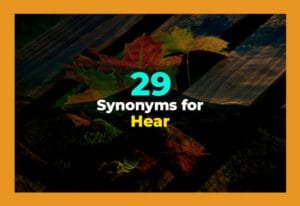Sometimes we need just a little, not too much. Words like small, tiny, slight, or simple can say the same as minimal. These words keep things easy and clear. Today, we will explore 28 great synonyms for minimal, with easy meanings and examples you can use right away.
1. Small
Small means not big in size or amount. It's often used for things that are limited or less. For example, "She wore a small ring on her finger," or "He made a small mistake." Small shows that something is minimal without being zero. It's simple, clear, and easy to use every day.
2. Little
Little means tiny or not much. It often sounds more friendly than small. For example, "He drank a little water," or "She gave me a little smile." Little is often used in daily talk. It shows that something is minimal but still present. It's a common and simple synonym for minimal.
3. Tiny
Tiny means very, very small. It makes things sound cute or very minimal. For example, "She saw a tiny bird on the tree," or "The box was tiny but strong." Tiny is often used when we want to show something is much smaller than normal. It is easy to understand and fun to use.
4. Slight
Slight means very little or not much. For example, "He had a slight headache," or "There was a slight change in the plan." Slight is often used when the difference or effect is not big. It is a gentle way of saying minimal. It shows something is present but not strong or large.
5. Modest
Modest means small, not large, or not too much. For example, "He has a modest income," or "She wore a modest dress." Modest is often used when we want to show something is enough but not extra. It is a polite and simple way to describe minimal things without sounding negative.
6. Basic
Basic means simple and not extra. For example, "He learned the basic rules of the game," or "She cooked a basic meal." Basic is used when something is minimal but still useful. It shows that only the needed parts are included, without any extras. It is a clear synonym for minimal.
7. Bare
Bare means just enough, without extras. For example, "The room had bare walls," or "He gave me the bare facts." Bare often shows minimal things or conditions. It can sound plain but direct. Bare is a good word when something is stripped down to only what is needed. It is simple and easy.
8. Simple
Simple means easy and not complex. For example, "She gave a simple answer," or "The design is simple but beautiful." Simple often shows minimal detail but still clear meaning. It is a friendly way to describe minimal things that are easy to understand. It also makes life and language feel lighter.
9. Least
Least means the smallest amount or level. For example, "He made the least effort," or "This is the least expensive option." Least shows minimal choice or action. It often compares things to show the lowest part. Least is useful when we want to point out the smallest or weakest version of something.
10. Minimum
Minimum means the lowest possible amount or number. For example, "The minimum age to drive is 18," or "You must pay the minimum fee." Minimum shows rules or limits at their lowest. It is often used in official or serious settings. It is a clear synonym for minimal, meaning the least amount possible.
11. Sparse
Sparse means very few or spread out. For example, "The forest had sparse trees," or "His notes were sparse but useful." Sparse is often used when something is minimal in number or amount. It shows that there is space or emptiness between things. Sparse makes it clear that something is minimal and thin.
12. Limited
Limited means not much or not many. For example, "He had limited time," or "The shop has limited stock." Limited shows that something is minimal because it is controlled or small. It often sounds serious but clear. It is often used in business, rules, and daily life. Limited is a strong synonym for minimal.
13. Slim
Slim means thin or small in amount. For example, "He has a slim chance of winning," or "She carried a slim notebook." Slim can show physical thinness or small chances. It is an easy word to describe minimal things. Slim is a good choice when you want to show something is barely enough.
14. Meager
Meager means very small in amount or weak in quality. For example, "He lived on a meager salary," or "She had a meager meal." Meager is often used in serious or sad situations. It shows that something is minimal and not enough. Meager has a stronger tone compared to words like small or little.
15. Insignificant
Insignificant means too small to matter. For example, "The error was insignificant," or "He made an insignificant change." Insignificant shows that something is minimal and not important. It is often used in serious or formal talk. It makes clear that the thing is too small to make any real difference.
16. Inconsequential
Inconsequential means unimportant or too small to count. For example, "His words were inconsequential," or "The mistake was inconsequential." Inconsequential is a longer word but simple in meaning. It shows that something is minimal and does not change anything. It is often used in writing, speaking, and formal work to explain small details.
17. Negligible
Negligible means so small that it does not matter. For example, "The cost was negligible," or "The effect is negligible." Negligible is used in formal or serious talk. It shows that something is minimal and can be ignored. It is an exact synonym for minimal, especially in numbers, money, or science.
18. Trivial
Trivial means not important and very small. For example, "They argued over a trivial matter," or "The detail was trivial." Trivial shows that something is minimal and not worth focus. It is often used to make light of small issues. Trivial is simple and clear, a perfect everyday synonym for minimal.
19. Minor
Minor means small in importance or size. For example, "He had a minor injury," or "The project faced minor problems." Minor shows that something is minimal and not serious. It is often used in health, rules, or daily talk. Minor is a very common word and easy synonym for minimal.
20. Few
Few means a small number of things. For example, "He has few friends," or "There were few cars on the road." Few shows minimal count. It can sound a little negative, meaning not many. Few is simple and easy, often used to talk about people, objects, or situations in daily life.
21. Short
Short means small in length, time, or amount. For example, "She gave a short speech," or "The meeting was short." Short is a very common word. It often shows minimal time, size, or space. Short is easy to use and fits in many situations. It is one of the clearest synonyms for minimal.
22. Restricted
Restricted means limited or controlled. For example, "They entered a restricted area," or "He had restricted access to files." Restricted shows minimal freedom or choice. It is often used in serious or official places. Restricted is a stronger synonym for minimal, especially when rules or limits are set for safety or order.
23. Essential
Essential means only the most needed parts. For example, "He packed only essential items," or "Food and water are essential for life." Essential shows minimal but important things. It often leaves out extra or non-important items. Essential is a clear synonym for minimal when talking about what is most necessary.
24. Fundamental
Fundamental means basic and most important. For example, "He learned the fundamental rules," or "Trust is fundamental in friendship." Fundamental shows minimal but needed parts of something. It is often used in teaching, science, or rules. Fundamental makes it clear that the minimal things are the building blocks of bigger ideas.
25. Undemanding
Undemanding means simple and easy, not asking for much. For example, "The job is undemanding," or "She likes undemanding clothes." Undemanding shows minimal effort or need. It is often used in daily life for tasks or style. Undemanding is a light synonym for minimal that feels friendly and calm.
26. Modicum
Modicum means a small or limited amount. For example, "He showed a modicum of respect," or "She had only a modicum of patience." Modicum is a formal word but simple in use. It shows minimal in a very exact way. It is often used in writing or serious talk. It adds variety as a synonym.
27. Elemental
Elemental means basic and simple parts. For example, "He learned the elemental facts," or "Water is an elemental need." Elemental shows minimal things that are the base of others. It is often used in science, learning, or deep talk. Elemental is a clear synonym for minimal that highlights the base essentials.
28. Scant
Scant means barely enough or too little. For example, "He had scant time to finish," or "The food was scant at the table." Scant shows minimal things that are close to missing. It often has a serious or negative tone. Scant is a simple but strong synonym for minimal, easy to use in writing.
Final Thoughts
Minimal is a simple word, but it has many faces. Small, little, tiny, basic, or scant, each synonym shows a different way of saying less. Using these words makes writing richer and speaking clearer. You can choose the word that feels right for the moment. With these 28 synonyms, you will never run out of ways to explain minimal in daily life.

| Synonym | Meaning | Example |
|---|---|---|
| Small | Not big in size or amount | She wore a small ring on her finger. |
| Little | Tiny or not much | He drank a little water. |
| Tiny | Very small | She saw a tiny bird on the tree. |
| Slight | Very little or not much | He had a slight headache. |
| Modest | Small or not too much | He has a modest income. |
| Basic | Simple, without extra | She cooked a basic meal. |
| Bare | Just enough, without extras | He gave me the bare facts. |
| Simple | Easy, not complex | She gave a simple answer. |
| Least | The smallest amount | This is the least expensive option. |
| Minimum | The lowest possible number | You must pay the minimum fee. |
| Sparse | Few, spread out | The forest had sparse trees. |
| Limited | Not much or many | He had limited time. |
| Slim | Small in amount | He has a slim chance of winning. |
| Meager | Very small or weak | He lived on a meager salary. |
| Insignificant | Too small to matter | The error was insignificant. |
| Inconsequential | Unimportant or small | The mistake was inconsequential. |
| Negligible | So small it does not matter | The cost was negligible. |
| Trivial | Very small and not important | They argued over a trivial matter. |
| Minor | Small in importance | He had a minor injury. |
| Few | A small number | He has few friends. |
| Short | Small in time or amount | The meeting was short. |
| Restricted | Limited or controlled | He had restricted access to files. |
| Essential | Only most needed parts | He packed only essential items. |
| Fundamental | Basic and most important | He learned the fundamental rules. |
| Undemanding | Simple, not asking for much | The job is undemanding. |
| Modicum | A small amount | She had a modicum of patience. |
| Elemental | Basic parts | Water is an elemental need. |
| Scant | Barely enough | He had scant time to finish. |









